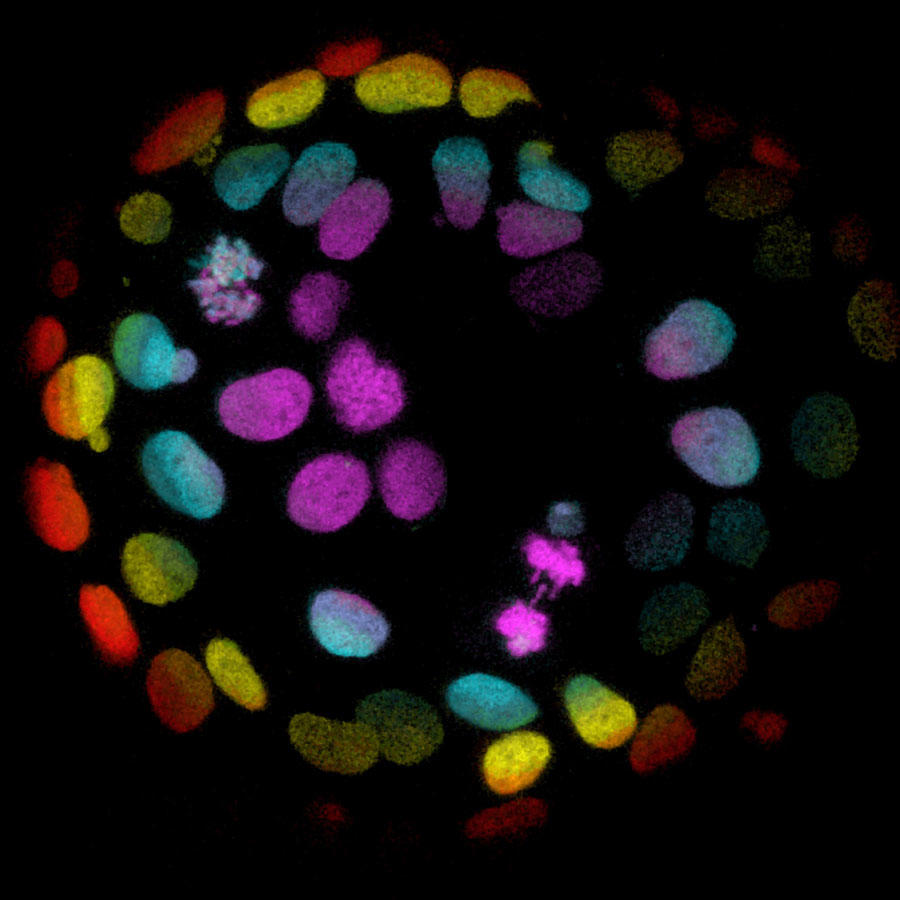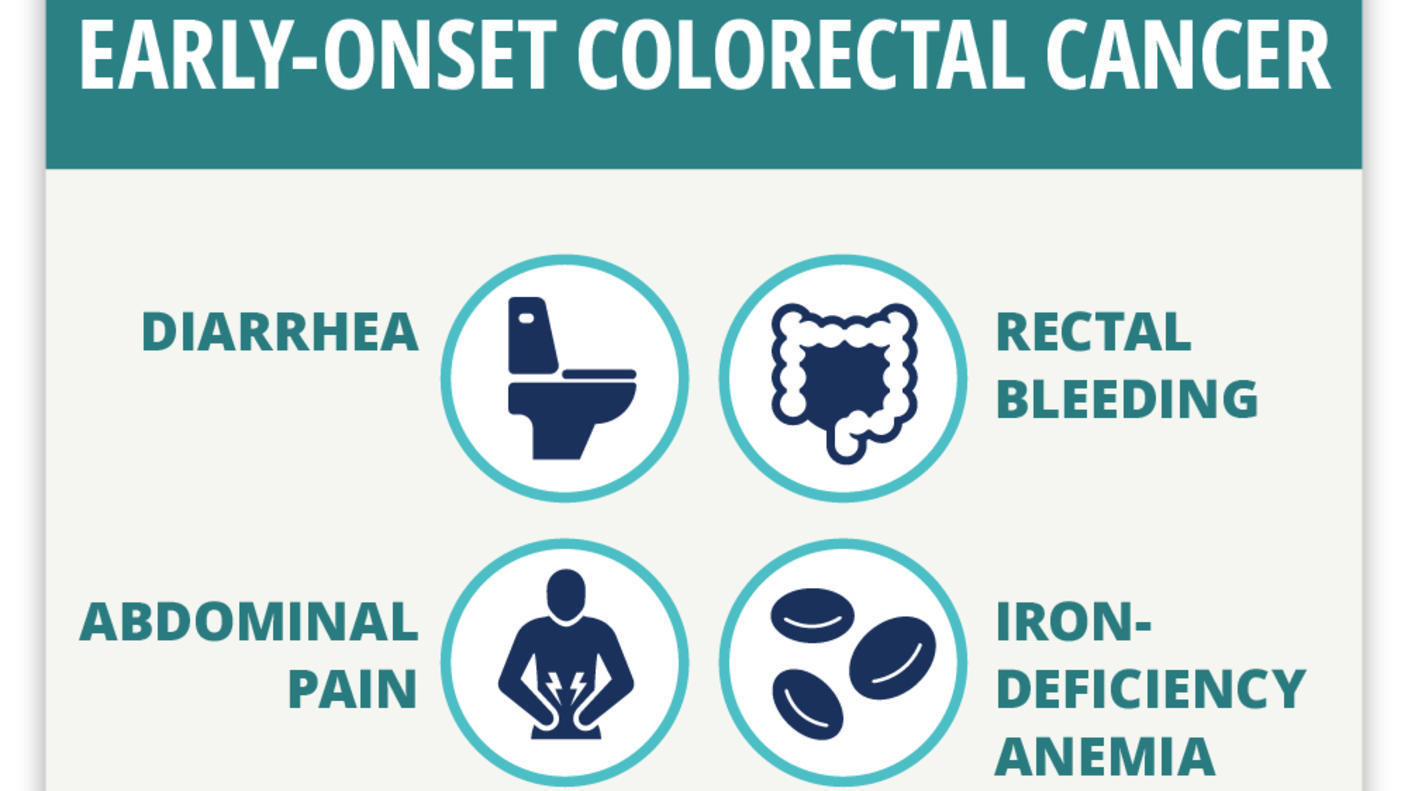Research in Prevention and Early Detection
Screening can prevent colorectal cancer through detection of precancerous growths, or polyps, which can be removed before they become cancerous. It can also allow colorectal cancers to be detected early, before they cause symptoms and when treatment may be more effective.
Colorectal cancer screening tests. These include colonoscopy, sigmoidoscopy, stool-based tests to detect hidden blood (fecal immunochemical testing (FIT) or fecal occult blood testing (FOBT)), and virtual colonoscopy. (See Screening Tests to Detect Colorectal Cancer and Polyps for more information.)
Despite the availability of effective colorectal cancer screening tests, some people choose not to get screened. Some reasons may be because of the personal nature of the procedures, a lack of recommendation by their doctor, perceived costs or lack of insurance, or the preparation involved for a colonoscopy.
Blood-based tests. Blood-based tests have been developed that analyze substances shed into the blood by colorectal cancer cells. Although these tests have not yet been included into screening guidelines, the hope is that they will enable simple, fast screening.
In 2024, FDA approved a new blood test called Shield for people at average risk for colon cancer. In a study of 8,000 people, the test detected colorectal cancers in more than 83% of the participants found to have colorectal cancer on colonoscopy.
Repeat screening or follow-up. The guideline for getting a screening colonoscopy is every 10 years as long as results are normal. However, if one or two small, noncancerous polyps are found, people usually get a repeat screening earlier.
NCI’s FORTE Colorectal Cancer Prevention Trial, is now looking at whether some people with one or two small polyps can wait 10 years before returning for another colonoscopy. By comparing two study groups, one with repeat colonoscopy after 5 years, and one with repeat colonoscopy after 10 years, researchers hope to learn whether waiting 10 years is as good at preventing colorectal cancer as follow-up exams after 5 years.
For colorectal cancer screening to be effective people need to follow up on abnormal test results. NCI is funding research to better understand how to increase colonoscopy screening, including how to increase repeat and follow-up screenings. Studies are also being done within the healthcare setting to look at ways to affect the decision to get screened.
Prevention of colorectal cancer. Research is also ongoing in the prevention of colorectal cancer. Studies are looking at how lifestyle factors may reduce the risk of the disease. Examples include research in physical activity, diet, presence of certain gut microbes, calcium intake, and regular aspirin use.
Research in Treatment for Colorectal Cancer
Surgically removing the cancer is the most common treatment for many stages of colorectal cancer. Chemotherapy, radiation, targeted therapy, immunotherapy, radiofrequency ablation, and cryosurgery are other treatments that may be used to treat colorectal cancer, depending on the stage.
Because of an increased risk of recurrence, differences in anatomy, and poorer prognosis, the treatment of rectal cancer may differ from that of colon cancer. Although surgery remains a common type of treatment for local and locally advanced rectal cancer, people with some stages may be treated with radiation, chemotherapy, and/or targeted therapy with or without surgery.
In addition to these standard treatments for rectal cancer, researchers continue to study both new treatments, such as immunotherapies, and new combinations of existing treatments in clinical trials.
Clinical trials for colorectal cancer treatment include:
- The ERASur trial is comparing adding ablative therapy to standard chemotherapy versus chemotherapy alone in patients with advanced colorectal cancer that has begun to spread.
- One NCI-supported trial is comparing a standard treatment (chemoradiation followed by combination chemotherapy) with chemoradiation followed by combination chemotherapy that includes an additional chemotherapy drug. The goal is to find out whether the additional chemotherapy drug may increase the likelihood of the cancer responding and possibly avoid the need for surgery.
Immunotherapy for patients with Lynch syndrome or MSI-H colorectal cancer
Approximately 5% of colorectal cancer cases are due to Lynch syndrome, an inherited DNA repair disorder. People with this disorder have an increased risk of developing colorectal cancer, typically before they reach the age of 50. Lynch syndrome colorectal cancer tumors have many mutations, which may make them more susceptible to immunotherapies.
People whose colorectal tumors have a genetic feature known as microsatellite instability-high (MSI-H) or a defect in a process called mismatch repair also have many mutations in their tumors. About 15 percent of patients with stages II and III colorectal cancer and about 5 percent of those with stage IV disease have MSI-H tumors.
- The immune checkpoint inhibitors nivolumab (Opdivo), ipilimumab (Yervoy), and pembrolizumab (Keytruda) have all been approved for the treatment of metastatic colorectal cancer in patients with Lynch syndrome and in patients with MSI-H cancers.
- The NCI-supported COMMIT study is testing the addition of atezolizumab (Tecentriq) to the combination of chemotherapy and the targeted therapy bevacizumab (Avastin), for treating patients that have defective DNA mismatch repair. The hope is that combining drugs that work in different ways will improve treatment results in patients with colorectal cancer.
- The NCI-supported Atomic trial is studying whether adding atezolizumab to chemotherapy will improve outcomes in people with earlier-stage disease (specifically, stage III colon cancer) that is deficient in DNA mismatch repair.
Combining immunotherapy with other treatments for patients without Lynch syndrome
Immune checkpoint inhibitors have been less effective in colorectal cancer patients without Lynch syndrome and whose cancers don't have mismatch repair deficiency and are not MSI-H. (However, if they don't have liver involvement, immunotherapy may benefit advanced colorectal cancer patients.)
Scientists are currently testing various agents, such as chemotherapy drugs, targeted therapies and viruses, in combination with immune-based therapy to determine whether combining different types of treatments would be effective in killing cancer cells.
Using targeted therapies for metastatic colorectal cancer
Using targeted therapies against genetic mutations that may drive tumor growth is another key area of research for metastatic colorectal cancer. The goal is to find agents that can block the activity of the abnormal proteins produced by these mutations. For example:
- The drug encorafenib (Braftovi), which targets the BRAF protein, is approved for the treatment of some patients with colorectal cancer. This drug is used in combination with cetuximab (Erbitux) in adults with metastatic colorectal cancer whose tumors have a certain mutation in the BRAF gene and who have already undergone treatment.
- Encorafenib has more recently been approved to be used along with cetuximab and the chemotherapy combination FOLFOX for the first-line treatment of people with metastatic colorectal cancer that has a common BRAF mutation.
- In a small clinical trial, the targeted drug dostarlimab (Jemperli) completely shrank tumors in people with locally advanced rectal cancer whose tumors had a mismatch repair deficiency. Most of the patients who have been followed for at least 2 years have not had a recurrence.
- An NCI-supported trial showed that colorectal cancer that contains mutations in the BRAF gene responds to treatment with the drug vemurafenib (Zelboraf) in combination with cetuximab and irinotecan (Camptosar). Vermurafentib targets mutant B-Raf proteins when combined with these two drugs.
- A combination of two targeted drugs, tucatinib (Tukysa) and trastuzumab (Herceptin) is approved for people with advanced colorectal cancer that produces an excess amount of a protein called HER2. (HER2 overexpression is seen in less than 3% of people with advanced colorectal cancer.)
Testing liquid biopsies
Liquid biopsies are a promising new approach being explored to detect, analyze, and track DNA, cells, and other substances shed from tumors into bodily fluids, such as blood and urine. Scientists are testing this method to detect colorectal cancer early, measure treatment responses, identify treatment resistance, and monitor for disease recurrence.
One trial found that testing blood for fragments of genetic material (DNA) shed by tumors, known as circulating tumor DNA (ctDNA), could identify patients with stage IIA colon cancer who might benefit from additional treatment with chemotherapy after surgery.
An ongoing trial is studying ctDNA in people with stage II or III colon cancer. The goal is to determine whether and what type of chemotherapy will benefit patients who have had surgery for their colon cancer based on the presence or absence of ctDNA.
NCI-Supported Research Programs
Many NCI-funded researchers at the NIH campus, and across the United States and world, are seeking ways to address colorectal cancer more effectively. Some research is basic, exploring questions as diverse as the biological underpinnings of cancer and the social factors that affect cancer risk. And some is more clinical, seeking to translate this basic information into improving patient outcomes. The programs listed below are a sampling of NCI’s research efforts in colorectal cancer.
- The NCI-supported genetic study, ENLACE, aims to learn more about colorectal cancer in people of Hispanic and Latino descent, with the ultimate goal of improving treatments for this population group. To achieve this, scientists are also testing ways to engage more people from this group in cancer research.
- The Population-based Research to Optimize the Screening PRocess (PROSPR) is an NCI-supported network conducting research to better understand how to improve the entire cancer screening process (recruitment, screening, diagnosis, referral for treatment) for lung, colorectal, and cervical cancer in community healthcare settings.
- Accelerating Colorectal Cancer Screening and Follow-Up Through Implementation Science (ACCIS) is intended to promote research in colorectal cancer screening, follow-up, referral-to-care and best practices for how multilevel interventions can be scaled-up in regions of the United States where screening rates are below national standards.
- The NCI-funded Colon Cancer Family Registry (CCFR) has established an international cohort of thousands of colorectal cancer patients, their relatives, and individuals at increased risk of colorectal and other cancers. Over 10,000 families from the United States, Canada, Australia, and New Zealand have been registered. The database includes more than 2,000 individuals with Lynch syndrome, from 781 families.
- NCI's Gastrointestinal (GI) SPOREs focus on translational research in the gastrointestinal system. Currently, GI SPOREs focus on cancers of the colon, rectum, esophagus, liver, gastrointestinal stromal tumors (GIST), and pancreas, which account for the majority of new diagnoses.
- A Cancer Grand Challenges team is targeting early-onset colorectal cancer by understanding the pathways, risk factors, and molecules involved in the development of the disease.
Clinical Trials
NCI funds and oversees both early- and late-phase clinical trials to develop new treatments and improve patient care. Trials are available for colorectal cancer screening, colorectal cancer prevention, and treatment for colon cancer and rectal cancer.
Colorectal Cancer Research Results
The following are some of our latest news articles on colorectal cancer research:
- Colorectal Cancer Screening: Where Does the Shield Liquid Biopsy Fit In?
- ctDNA May Guide Who Needs Chemo After Colorectal Cancer Surgery
- ENLACE Study Explores Colorectal Cancer in Hispanic and Latino People
- Is AI Ready to Play a Leading Role in Colorectal Cancer Screening?
- Some People with Rectal Cancer Can Skip Radiation Before Surgery
- How Fatty Liver Disease Helps Cancer Thrive in the Liver
View the full list of Colorectal Cancer Research Results and Study Updates.

